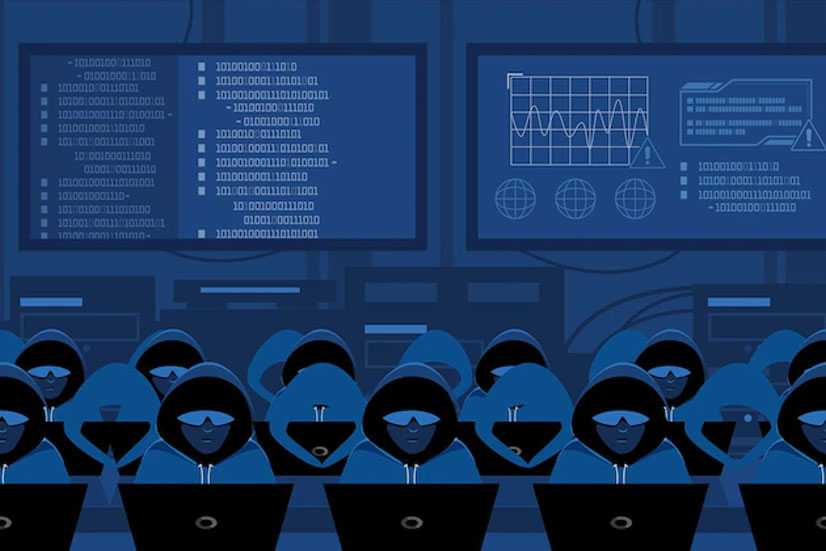Cyber ethical hacking course: An Inclusive Guide
- Posted by Labootcamps
- Categories Blog
- Date August 9, 2022
Training in Ethical Hacking offers tactics that make use of existing cyber security knowledge to thwart incursions and assaults that are malevolent in nature. A course in ethical hacking will help you grow your knowledge in information technology security, which can open the door to numerous career opportunities in the industry and help you raise your worth in any role involving information technology. You may learn how to prevent unauthorised users from accessing your computer networks and systems at work and at home by enrolling in a hacking class.
The practise of ethical hacking
In the practise of ethical hacking, a hacker makes a deal with an organisation or a person who gives the hacker permission to launch cyber assaults against a computer system or a computer network in order to uncover possible security flaws. White hat hacking is another term that may be used interchangeably with ethical hacking. Many organisations rely on the expertise of ethical hackers to determine where their networks, endpoints, devices, or apps are vulnerable. The hacker communicates with their customer about when they will attack the system and the breadth of the assault that they want to carry out.
A hacker that practises ethical hacking does their work within the parameters of the contract they have with their customer. They cannot do effort to find vulnerabilities and then demand money to repair such flaws. This is the method used by hackers that wear grey hats. Black hat hackers, on the other hand, are hackers who break into systems in order to do damage to other people or profit themselves without authorization. Ethical hackers are not like black hat hackers.
Training programme on ethical hacking
When referring to security experts that provide offensive services, such as red teams, pentesters, or freelance offensive consultants, the phrase “ethical hacker” encompasses all of these categories. There is also the possibility that the job names of security analysts and engineers have derogatory connotations. Within an organisation, offensive security services like these may often fall under the purview of a group responsible for managing threats and vulnerabilities.
For the purposes of this guide, various names for ethical hackers are used interchangeably. For example, while there are some subtle technical differences between the services provided by an independent offensive cybersecurity consultant and those provided by an in-house pentester, these names are used interchangeably.
The role that an ethical hacker plays
Ethical hackers may work as independent freelance consultants, as employees of a company that specialises in providing simulated offensive cybersecurity services, or as in-house employees protecting a company’s website or mobile applications. All three of these scenarios are viable career paths for ethical hackers. However, an in-house ethical hacker may be expected to have an in-depth familiarity with just a specific programme or digital asset type, in addition to having understanding of current attack methodologies and tools, which is a necessity for all of these career opportunities.
An advantage that an in-house red team may provide is the fact that the team will necessarily have a more intimate understanding of how their own systems and applications are constructed than would be the case with an independent consultant. This is despite the fact that the red team concept is still relatively new in the security industry. Because they have access to such intimate information, the red team has an advantage, provided that they keep their perspective from becoming too narrow. It would take actual adversaries a significant amount of time to get this edge. It is often believed that using in-house teams is more cost-effective than employing the services of a consulting business on an ongoing basis.
In contrast, one of the benefits that may be provided by an external ethical hacker is a new pair of eyes to detect vulnerabilities that the internal team may have missed. Even companies that have their own internal red team may, on occasion, decide to hire an ethical hacker from the outside to give a new perspective on how well their defences are working.
The competencies necessary to pursue a career as an ethical hacker
The Certified Ethical Hacker (CEH) certification and the Offensive Security Certified Professional (OSCP) certification are the two qualifications that are exclusive to ethical hacking (OSCP).
According to EC-Council, “A Certified Ethical Hacker is a skilled professional who understands and knows how to look for weaknesses and vulnerabilities in target systems and uses the same knowledge and tools as a malicious hacker, but in a lawful and legitimate manner to assess the security posture of a target system.” This is how the CEH certification is described (s). Individuals who have earned the CEH accreditation have shown their mastery of the specialised field of ethical hacking, which falls under the umbrella of network security.
If you want to improve your chances of being hired as an ethical hacker, getting any of the other cybersecurity professional certifications that EC-Council has to offer is a good place to start.
You may also like






